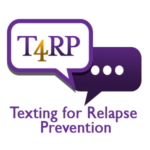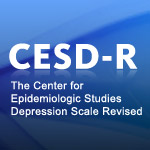Current
Girl2Girl
An estimated one in four teen women will become pregnant by the time she is 20 years of age. And though rates of teenage pregnancy in the U.S. have largely been on the decline for the last 25 years, they are still significantly higher than those of other industrialized nations. High teen birth rates are not limited to one region or state, but exist throughout the United States. As such, evidence-based teen pregnancy prevention (TPP) programs that can be dispatched on a wide scale are urgently needed. To address this need, we’ve endeavored to develop and rigorously evaluate Girl2Girl, a TPP program designed for teen women ages 14-18 years, nationwide. This program will be delivered in the format that is closest and most familiar to teen women: texting. Text-messaging is cost-effective and will allow for speaking directly to diverse female youth across the country. Girl2Girl RCT Phone Sc …
Previous
Texting 4 Relapse Prevention
The Texting for Relapse Prevention (T4RP) is an innovative service delivery program delivered via text messaging designed for people over 18 years of age who have schizophrenia / schizoaffective disorder (SAD).
In This Together
Despite early advances, HIV has been on the rise in Uganda, making it a persistent public health problem. Since 2005, when HIV prevalence was at its lowest, the percentage of people living with HIV in Uganda has risen from 6.4% to 7.3%. This translates into 1.4 million people living in Uganda with HIV. The HIV prevalence increases for both men and women as the age into their older adolescents. Alarmingly, recent data suggests that for woman, the HIV prevalence triples from 1.6% to 5.1% over a two-year period – as they age from 15-17 to 18-19 years of age. Clearly, curbing the HIV epidemic in Uganda requires access to culturally salient and theoretically-driven HIV prevention programming for adolescents as they age through this period of risk. To that end, we are currently developing, In This Together (ITG), the first-of-its-kind comprehensive HIV prevention program for Ugandan adolescent …
BullyDown
BullyDown is the first-ever text messaging-based bullying prevention program for middle school-aged children across the United States. The 7.5 week program is intended to be delivered as a “booster” that can be delivered to middle school students at any school to enhance the programming that they are receiving and to reinforce the most important maxims of anti-bullying programming. The program was iteratively developed with feedback from youth, including focus groups and a Content Advisory Team. To date, we have conducted a pilot test with middle school youth in the Chicago-area. Guided by the social-emotional learning (SEL) framework, program text messages discuss a variety of topics including anger, empathy, perspective-taking, respect for diversity, attitudes supportive of aggression, coping, intentions to intervene to help others, communication, and problem-solving skills. This proje …
Guy2Guy
Adolescent men who have sex with men (AMSM) are facing increasing incidence of HIV and account for almost 70% of new HIV diagnoses among young people in the US, with most transmission occurring through condomless sex. At the same time, the majority of prevention programs focus primarily on adults. The majority of program that are tailored to youth are heterosexual focused. To fill this gap, we developed Guy2Guy (G2G), a text messaging-based HIV prevention program tailored to the unique needs of adolescent men 14-18 years of age across the US. Content was developed iteratively, including focus groups, a Content Advisory Team, and a beta test. The program is comprised of six weeks of text messaging content guided by the Information-Motivation-Behavior (IMB) model. Topics include: HIV transmission and prevention information, social norms about HIV prevention and attitudes toward condom use, …
CESD-R
The Center for Epidemiologic Studies Depression Scale Revised Everyone occasionally feels blue or sad, but these feelings usually go away within a few hours or a couple of days. When people have a depressive disorder, they feel really sad for a long time and cannot shake this feeling. They also often have problems with sleeping, trouble with appetite, feel tired a lot of the time, and have problems concentrating. Depressive disorder interferes with their ability to do things in their lives that they normally can do well; and it causes pain for both the people with the disorder and those who care about them. Depressive disorder is a common but serious illness. Many people never seek treatment for their depression, but most people who experience depression feel better if they get treatment. The CESD-R is a freely available screening test for depression and depressive disorder. It was d …
Cybersenga
HIV and AIDS continue to be a public health problem, and this is particularly true in sub-Saharan Africa. Concurrently, there has been an explosion in technology use. Taking advantage of this increased access, we developed and tested an online, evidence-based HIV prevention program designed for adolescents in Uganda called CyberSenga. In Uganda, the Senga is the father’s sister typically responsible for offering female children advice and guidance—including sexual health advice—to youth as they transition from childhood to adulthood. The Kojja is the male equivalent. We adopted the Senga and Kojja concepts to present a culturally salient, trustworthy role model for the youth to follow throughout the intervention. The CyberSenga program provides information about HIV, shows young people useful ways to solve problems and communicate with others about their needs, and shows young people …
Stop My Smoking (SMS USA)
Even though smoking-related diseases are the single most preventable cause of death in the United States, effective smoking cessation programs that are targeted to young adults are lacking. Stop My Smoking (SMS USA) is a text messaging-based smoking cessation program developed for young adults in the United States. The 6-week program is associated with increased rates of quitting at 4-weeks. The program was developed and tested in partnership with colleagues at Michigan State University and the University Of Texas School of Public Health at Houston.
SMS Turkey (Cebiniz Birakin Diyor)
Smoking represents a huge public health burden in Turkey: An estimated 51-63% of Turkish men and 24-26% of Turkish women 15 years of age and older smoke. Evidence-based smoking cessation programs are becoming more common in Turkey, but more work needs to be done. We developed and tested the first text messaging-based smoking cessation program in the Middle East. SMS Turkey (or Cebiniz Birakin Diyor in Turkish) was tested among adult smokers in Ankara, Turkey, and was associated with increased quitting rates for women and light smokers especially. This program was conducted in partnership with colleagues at Hacettepe University.
CyberBully411
Harassment and bullying on the Internet are serious adolescent health issues associated with significant personal challenge for some children. CyberBully411 provides accurate and helpful information about Internet harassment. It was the first of its kind to be designed especially for older adolescents. The site has been featured on the American Library Association’s “Dealing with Cyberbullies: Tips for Kids”. YPulse, a popular daily email update exclaims the website is “the slickest anti-bullying website I’ve seen, and packed with great info/resources”. The project was funded by the Community Technology Foundation of California.










